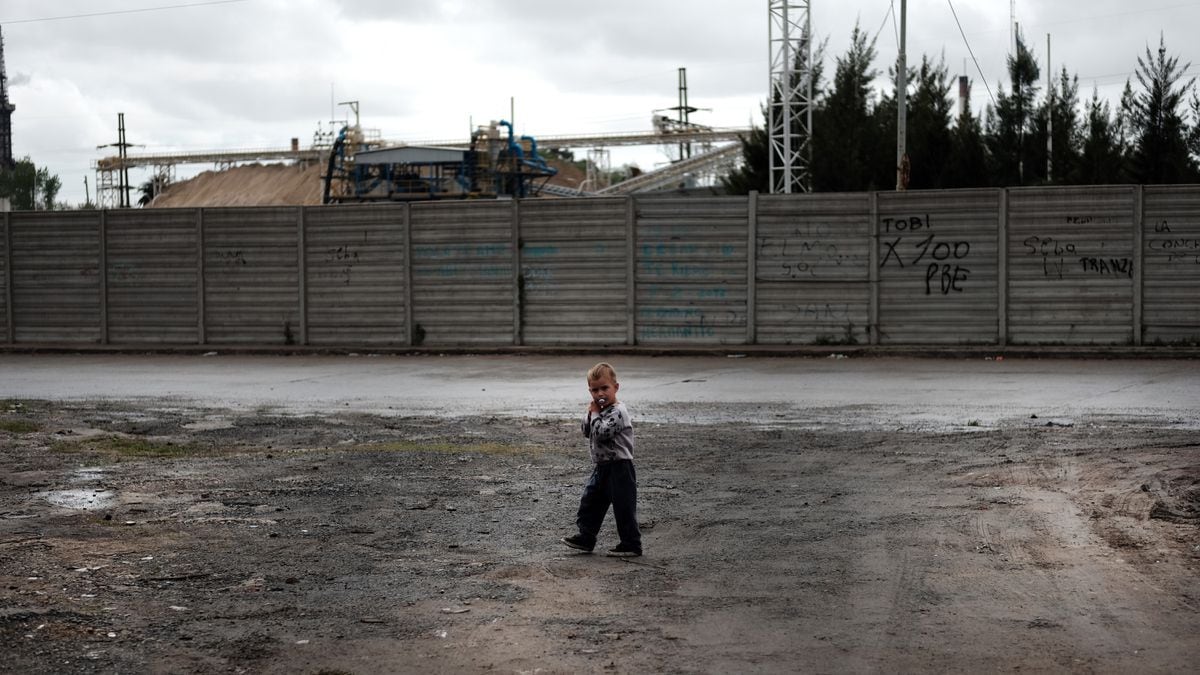Unicef predicts that child poverty will grow in Argentina to 70.8% and that extreme poverty among children and adolescents will rise to 34.4% in the first quarter of the year if “general conditions do not change” in the country.
“The inflationary levels of this period and economic stagnation result in a pronounced increase in poverty levels in all its forms, negatively impacting the well-being of girls and boys,” says one of the three reports presented by Unicef this Tuesday. .
Experts also warn that the implementation of “key” policies for the development of minors in Argentina shows “warning signs” in the first months of Javier Milei's Government.
The reports presented by Unicef indicate that, at the end of 2023, 57% of children and adolescents in Argentina were poor, that is, 7.1 million minors.
Some of them were even in situations of greater vulnerability, the documents state: “Poverty increases when the household members have a very low educational climate [level of schooling] (83%), in the cases of single-parent households (68% ) or when they reside in popular neighborhoods (84%).”
And the situation worsened if “monetary poverty” was added to the “deprivations” that some children experience linked to their rights.
UNICEF estimates that seven out of 10 children - 8.6 million nationwide - were experiencing one of these deprivations by the end of 2023.
Since December, however, the economic crisis in Argentina has deepened even more due to the adjustment imposed by the Milei Government.
The ultra's measures resulted in a fiscal surplus in January as a result of the sharp cut in public spending, but poverty soared.
In this context, this year's budget, which is an extension of that of 2023, allocates 3.66 billion pesos to policies aimed at children and adolescents, according to Unicef.
This represents, according to the projection made by the UN agency, a drop in the amounts allocated to minors of 75% in real terms compared to the budget accrued in 2023.
Unicef points out that this collapse is added to the contraction of 2023, the last year of the Peronist Alberto Fernández's administration, when the budget for children was reduced by 17% in real terms compared to the previous year, and considers it "imperative" that the Government expands these items “to prevent more boys and girls from falling into poverty.”
“The budget constitutes a key tool to provide elements from fiscal policy that guarantee compliance with the rights of children and adolescents,” said Luisa Brumana, Unicef representative in Argentina, in a statement released after the presentation of the reports.
During the event, held at the Unicef offices in Buenos Aires, Brumana responded to journalists that Unicef specialists have already met with “several teams” from different ministries of the current Cabinet and hope to soon have “tactical meetings” to “present work plans” to the Government.
Children and adolescents go to a community kitchen in a neighborhood of Buenos Aires. Spencer Platt (Getty Images)
Programs with “zero” or “high” execution
The United Nations agency warns in the reports presented this Tuesday about the “zero or almost zero” levels of execution of a “significant number” of initiatives linked to the food, education or health of minors so far this year. 2024. Asked by the press, the experts have not referred to community kitchens, neighborhood spaces that complement the food of millions of people in Argentina and that have stopped receiving merchandise from the national State while the Government reviews the assistance model.
Unicef specialists have explained that the financing of these soup kitchens is not included in the budget items allocated to children.
Unicef reports also warn of the “high” levels of execution of other programs, such as the Alimentar card, which for the Milei Government is the “most efficient” policy against hunger, or the Universal Child Allowance.
The first is an instrument that the State gives to mothers or fathers with children under 14 years of age for the purchase of food and that directly reaches 3.8 million people, according to official data;
The second is a monthly sum that the State pays for each child under 18 years of age to unemployed parents, with informal jobs or employed in domestic service.
According to the UN agency's analysis, the execution of these programs is too high for the time of year because “the amounts provided in the budget are not sufficient” to provide coverage all year round.
Unicef experts assure that the increases that the Government established to these two programs at the beginning of the year "contributed to mitigating the impact of price increases" - inflation exceeded 276% year-on-year in February - but none are sufficient to cover the basic food baskets nor has it managed to “reverse the situation.”
“Although there were positive signs, it is key to maximize efforts to improve the coverage and adequacy of benefits,” said Sebastián Waisgrais, specialist in Social Inclusion and Monitoring at Unicef, in a statement released after the presentation of the reports.
The expert warned that without income transfer policies to the most vulnerable households the situation would be even more critical: “Around 270,000 more girls and boys would live in poverty and more than a million would become destitute.”
“In a context of social vulnerability and high levels of child poverty, it is important to sustain budget allocations for household income protection policies,” urged Waisgrais.
“Protecting investment in children and adolescents,” the reports warn, “is also a necessary condition to lay the foundations for sustainable social and economic development for Argentina.”
Subscribe here to the
EL PAÍS América
newsletter and receive all the key information on current events in the region.

